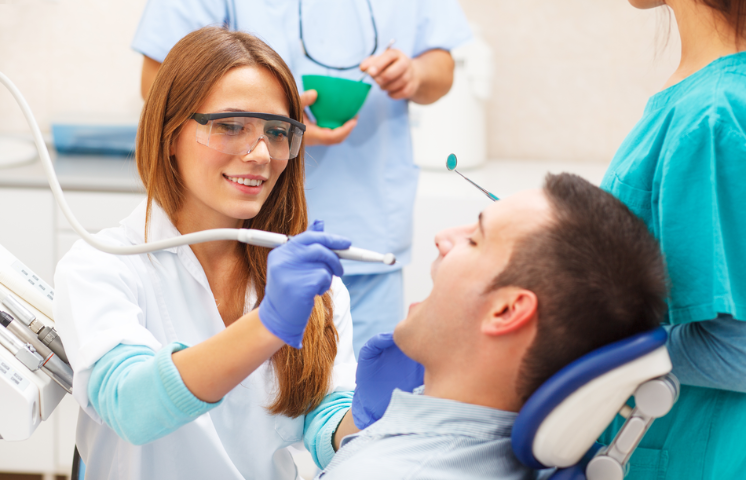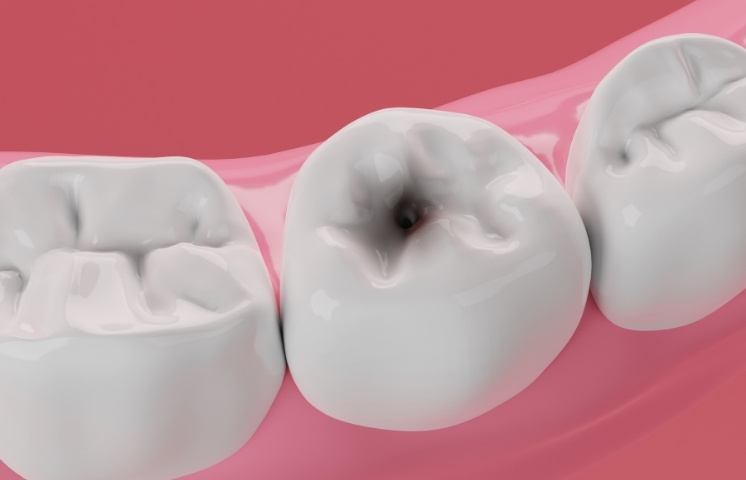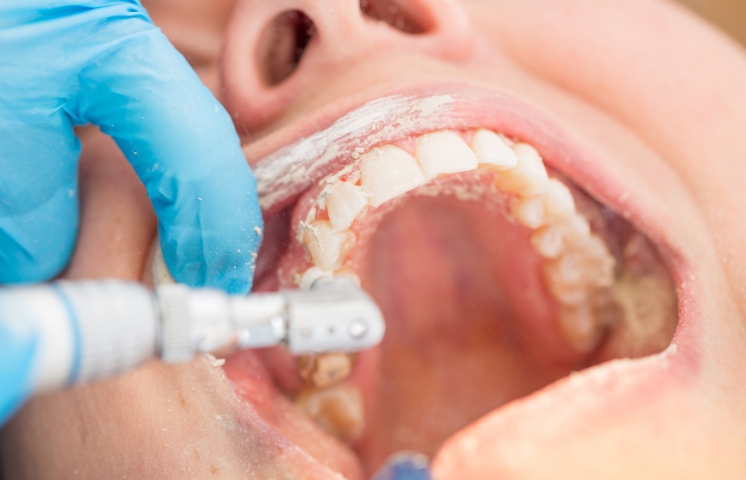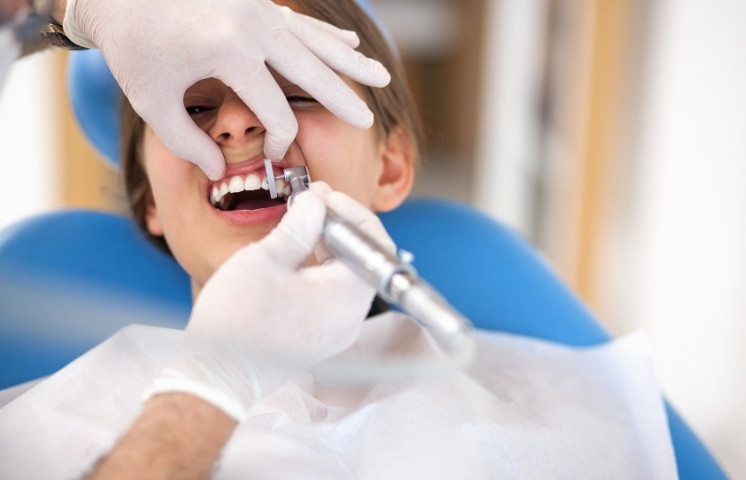Are You Due for a Dental Exam? Signs That It’s Time to Schedule an Appointment

Have you checked when you last visited your dentist?
Many people delay dental exams, thinking they’re unnecessary. However, regular check-ups play a crucial role in maintaining your oral health. They can catch issues before they escalate into more significant problems. Whether you’re due for your next appointment or just curious about the signs, you’re in the right place!
In this blog, we’ll explore the key indicators that it’s time to schedule a dental exam. From unexpected tooth pain to changes in your oral hygiene routine, these signs can help you determine when to pick up the phone and call your dentist.
So, let’s dive into the importance of staying on top of your dental health and why you shouldn’t ignore the signals your body sends you! Remember, a proactive approach can save you time, money, and discomfort in the long run. Don’t wait for a dental crisis—let’s ensure your smile stays bright and healthy!
Recommended Frequency of Dental Exams
How often should you visit the dentist? The answer varies based on several factors, but general guidelines recommend a dental exam every six months. This schedule helps maintain your oral health and allows your dentist to catch potential problems early. However, individual needs may differ.
- Age Matters: Children often require more frequent visits due to growing teeth and changes in oral health. Adults typically follow the six-month rule.
- Oral Health Status: If you have gum disease or cavities, your dentist may recommend more frequent check-ups.
- Risk Factors: Certain lifestyle choices, such as smoking or a diet high in sugar, may necessitate additional visits. Those with chronic health issues, like diabetes or heart disease, should also be vigilant about their dental care.
- Personal Preference: Some people prefer visiting the dentist more often, especially if they notice any changes in their oral health.
By understanding the recommended frequency of dental exams in Grass Valley, you can take proactive steps toward better oral health and a brighter smile.
Common Signs That Indicate You Need an Exam
Not sure if it’s time for a dental exam? Your body often provides clues that you shouldn’t ignore. Being aware of these signs can help you maintain your oral health effectively. Here are some key indicators:
- Pain or Discomfort: If you experience persistent toothache or gum pain, it’s time to see a dentist. Ignoring discomfort can lead to severe complications.
- Bad Breath: Persistent bad breath, despite maintaining good oral hygiene, may indicate underlying issues like gum disease or tooth decay.
- Changes in Bite or Sensitivity: Notice any changes in how your teeth fit together or increased sensitivity to hot or cold foods? These can signal the need for an examination.
Paying attention to these common signs helps you stay proactive about your dental health. Remember, addressing these issues early can prevent them from becoming more serious down the road.
Visual Signs to Look For
Sometimes, visual cues can indicate that you need to schedule a dental exam. Keep an eye out for these alarming signs that could signal dental issues:
- Swollen or Bleeding Gums: Healthy gums shouldn’t bleed. If you notice swelling or bleeding when brushing or flossing, it could indicate gum disease.
- Discoloration or Spots on Teeth: Dark spots or discoloration can suggest cavities or other issues. Don’t hesitate to get these checked.
- Loose Teeth or Changes in Alignment: If your teeth feel loose or you notice changes in their alignment, this can indicate serious dental problems.
Recognizing these visual signs helps you take timely action. Don’t wait for discomfort; make an appointment as soon as you notice any of these issues.
Lifestyle Changes That Warrant an Exam
Your lifestyle can significantly impact your dental health. If you’ve recently experienced any of these changes, it’s wise to consider scheduling a dental exam:
- New Medical Conditions: If you’ve been diagnosed with conditions like diabetes or heart disease, your dental health could be at risk. Regular check-ups help manage these connections.
- Diet Changes: Have you switched to a diet high in sugar or acidic foods? Such changes can lead to enamel erosion and cavities, requiring a dental evaluation.
- Increased Stress: Stress affects your overall health, including your oral health. It can lead to teeth grinding and jaw pain, which require professional attention.
By recognizing these lifestyle factors, you can better understand when it’s essential to consult your dentist and protect your smile.
Importance of Preventive Care
Preventive care is crucial for maintaining your oral health. Regular dental exams help you stay on top of potential issues and enjoy long-term benefits:
- Early Detection: Routine exams allow your dentist to identify problems early, preventing more extensive and expensive treatments later.
- Health Maintenance: Regular visits help maintain optimal oral hygiene, ensuring your teeth and gums remain healthy.
- Cost-Effective: Investing in preventive care saves money in the long run by avoiding costly procedures for neglected issues.
Making preventive care a priority not only protects your smile but also contributes to your overall well-being. Schedule those dental exams regularly for a healthier future!
What to Expect During Your Dental Exam?
Knowing what happens during a dental exam can ease any anxiety you might feel. Here’s a breakdown of typical procedures you can expect:
- Initial Assessment: Your dentist will start by reviewing your medical history and discussing any concerns you may have.
- Oral Examination: This involves a thorough inspection of your teeth, gums, and mouth for signs of decay, disease, or other issues.
- X-Rays: Depending on your age and health, your dentist may recommend X-rays to identify hidden problems beneath the surface.
- Cleaning: A dental hygienist will clean your teeth, removing plaque and tartar buildup to help maintain oral health.
- Oral Cancer Screening: Your dentist may conduct an oral cancer screening, checking for any unusual lesions or signs that need further evaluation.
Don’t overlook the signs that indicate it’s time for a dental exam. Staying proactive about your oral health ensures you catch potential issues early and maintain a beautiful smile. By understanding when to schedule an appointment, you take control of your dental care. If you notice any discomfort or changes, don’t hesitate to reach out. Regular visits not only enhance your smile but also contribute to your overall health. Ready to book your next appointment? Discover Dental Rocklin is here to help!




